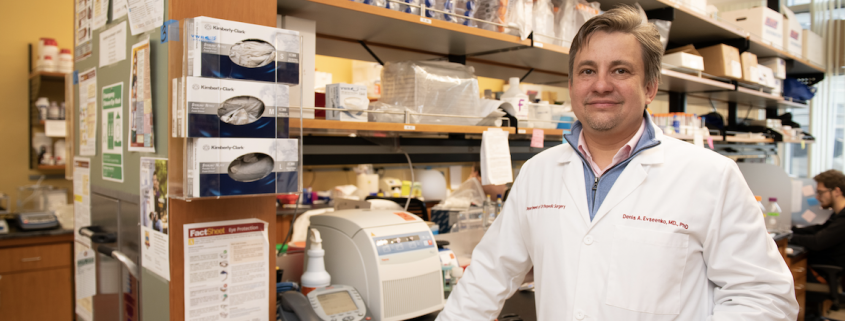Professor awarded research grant for arthritis research

After receiving a $1.69 million grant from the National Institute of Health, associate professor Denis Evseenko will work to find a potential cure for diseases like arthritis.
Evseenko’s research will focus on the regenerative capacities of joint cartilage cells, which affect such diseases. The grant will disperse in February and last five years.
“Stem cells can make cartilage when they’re young, but when you become an adult, you can no longer make any cartilage,” said Ruchi Bajpai, an associate professor on Evseenko’s team. “They can’t repair anymore, so the question is: Do we not have the stem cells or do we not have the mechanism to activate them?”
The research team will be looking at the STAT3 gene, which is beneficial in fetal cartilage but can lead to inflammation and arthritis among adults.
Arthritis affects about 54 million adults and 300,000 infants in America, according to the Arthritis Foundation. Arthritis is already the leading cause of disability in adults, and the number of people affected in the U.S. is expected to rise to 78 million by 2040.
“Very often patients who have arthritis get these cartilage defects that they have to live with for the rest of their life,” Bajpai said. “It’s so hard because there’s no way to repair or heal or work with them.”
The project will find ways to delay or minimize the effects of arthritis by manipulating stem cells and reversing or delaying aging in the synovial joint, the most common joint in the human body, according to Evseenko.
Levels of STAT3 decrease as cells lose their ability to regenerate, leading the research team to believe there is a correlation between aging and regeneration, Evseenko said.
From there, the team plans to manipulate the mechanisms that involve STAT3 to create a more efficient cure for those suffering from arthritis. Currently, patients can undergo therapies like hydrotherapy or acupuncture, take medicines or receive joint, hip or knee replacement surgeries. However, there is no cure for most types of arthritis, only treatment.
“[We want to] find out what are the molecular mechanisms that trigger these stem cells from working,” Bajpai said. “Once we figure this out, we can potentially apply them in various contexts where you want to regenerate cartilage in people.”
The team will also conduct research regarding adults who have high levels of STAT3 but do not suffer from arthritis. Once they solve the mystery behind the differing effects, the team will attempt to heal the damage at the root source rather than prescribing pain medication or suggesting joint surgery.
“We want to figure out what makes those cells special,” postdoctoral fellow Ben Van Handel said. “Why are they able to maintain STAT3 levels that are high and not suffer the bad consequences that typically happen when they activate STAT3?”
The team hopes to use this research to develop an inflammation-reducing drug that would kickstart the regenerative state of the joint cartilage, Van Handel said.
Evseenko has received close to $4 million for his stem cell research over the past few years, which has resulted in several breakthroughs in regenerative and anti-inflammatory medicine, along with the formation of human joint cartilage.

